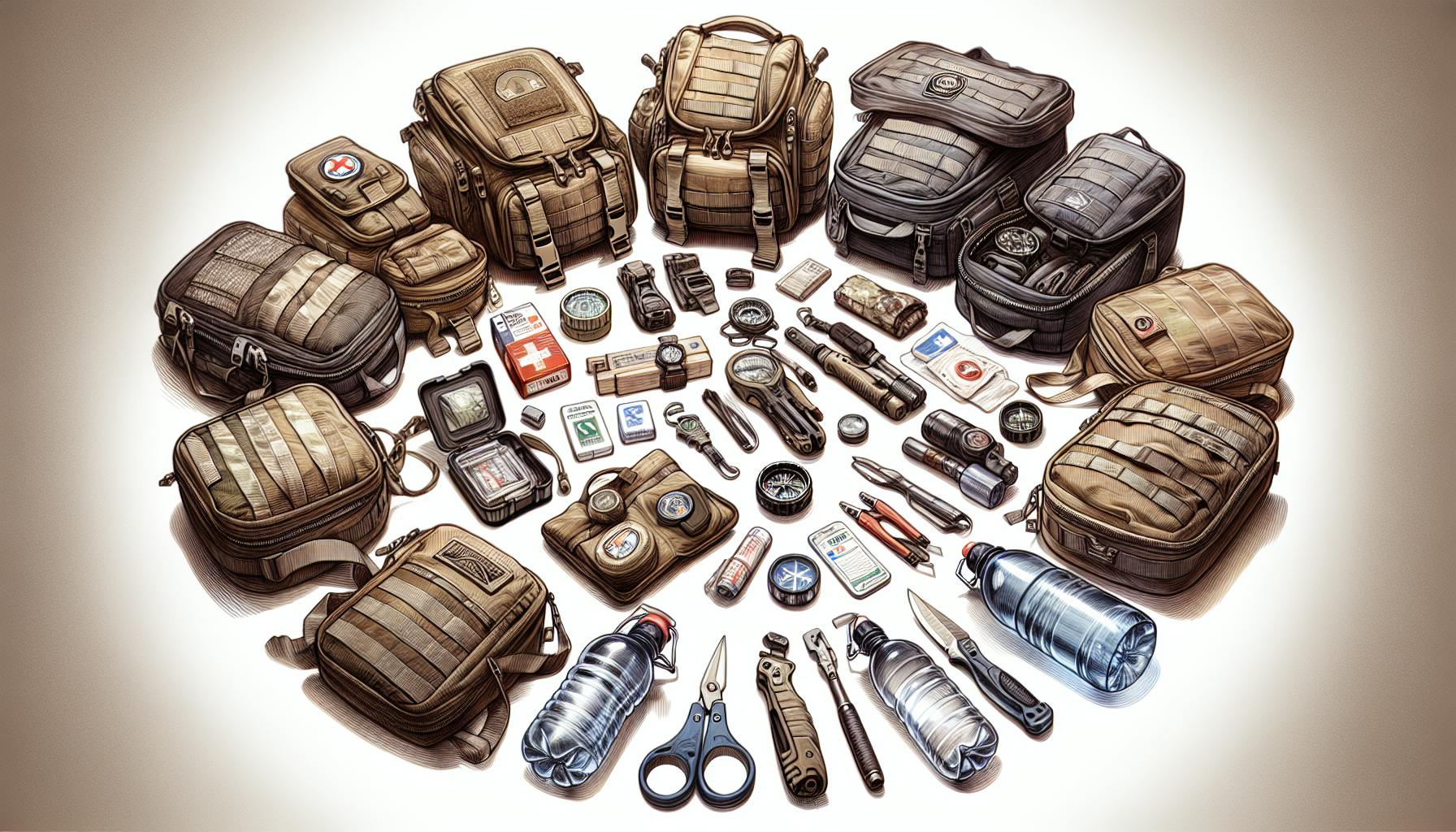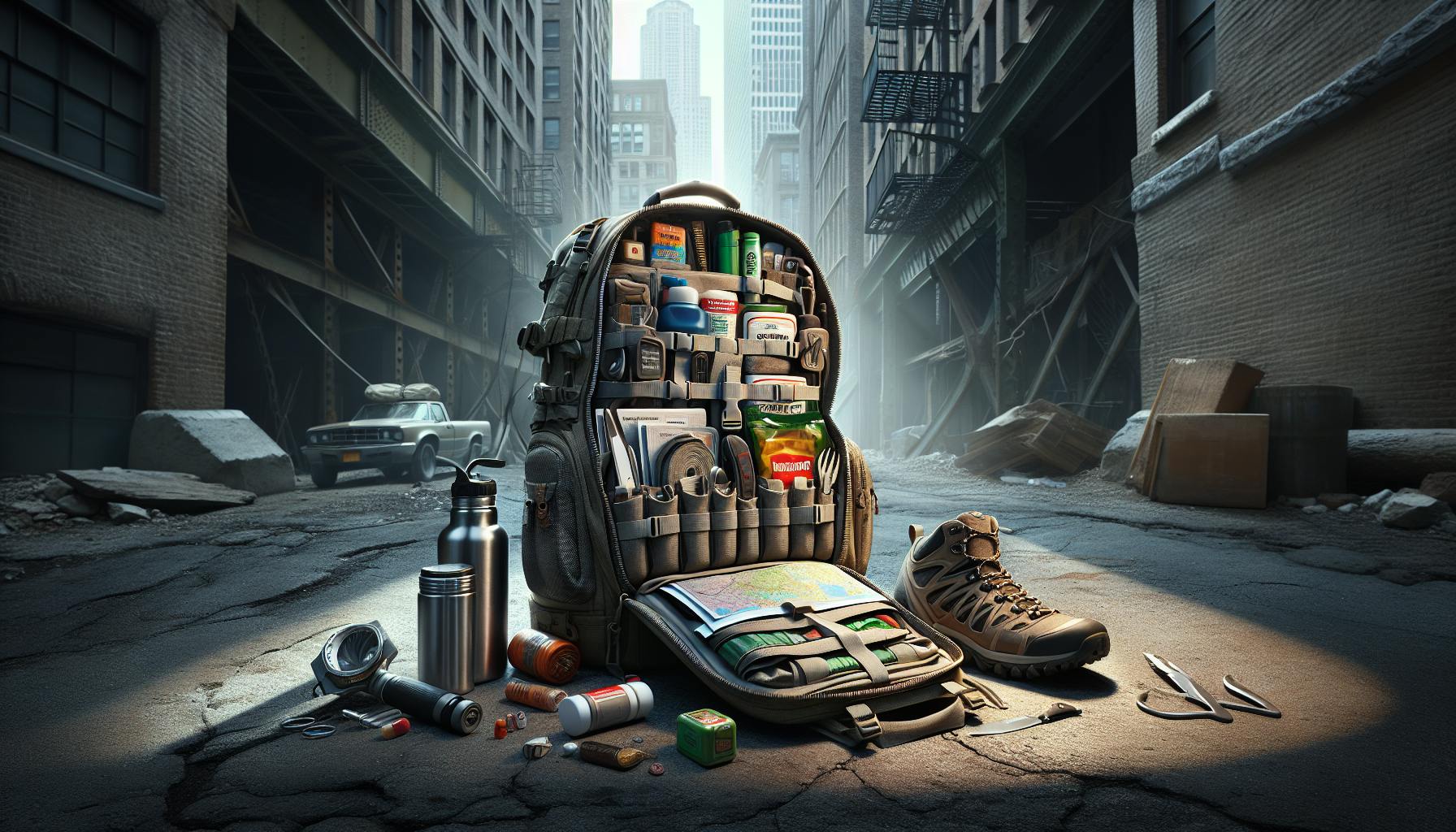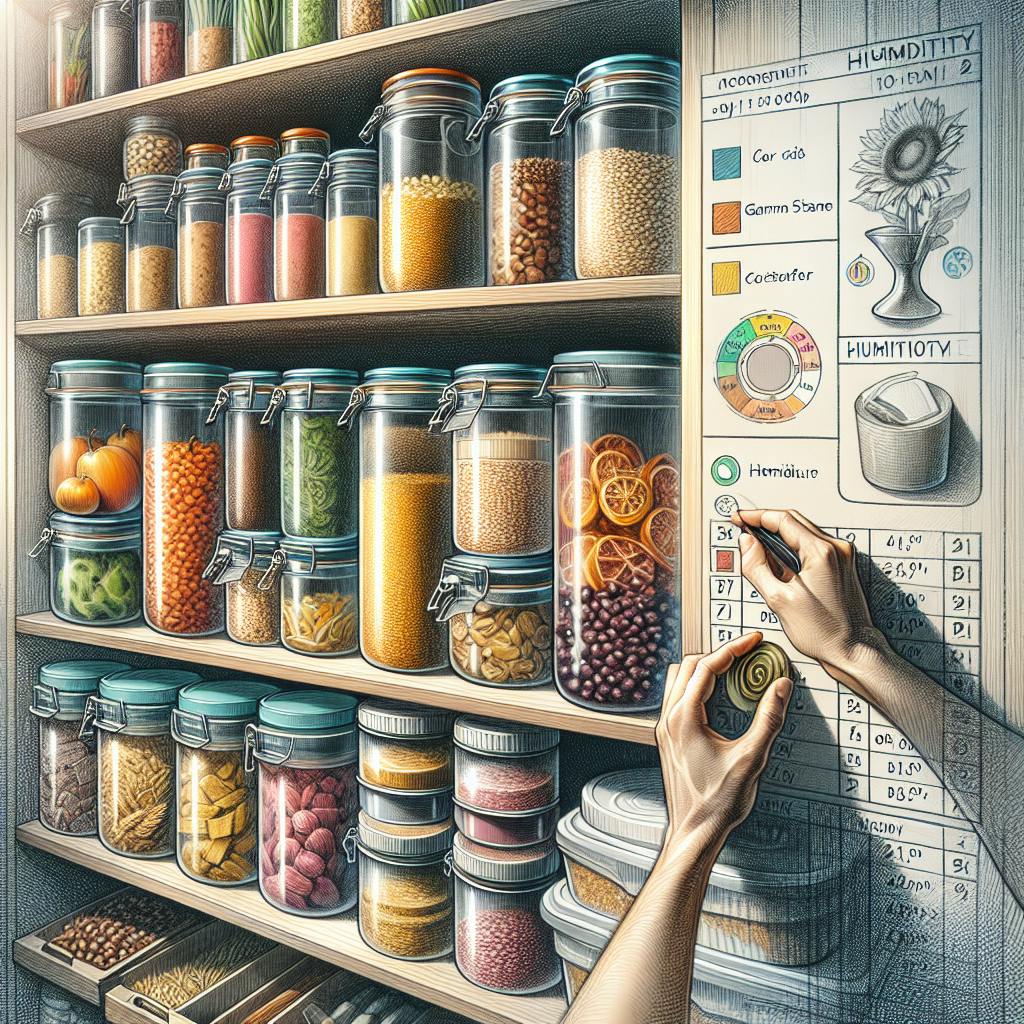Introduction: The Importance of Stocking Shelf-Stable Foods
Having a well-stocked pantry of shelf-stable foods is crucial for every prepper. When emergencies or disasters strike, you may lose access to fresh foods and normal grocery supply chains. Being prepared with non-perishable foods ensures you have nutritious options to feed your family, even if you can't leave your home or the power goes out for an extended period.
Stockpiling shelf-stable foods provides many key benefits:
-
Longevity - Properly stored, many canned, dried, and packaged foods can last for years or even decades. For example, canned goods stored in a cool, dark place can last 2-5 years while dried beans and grains stored in mylar bags with oxygen absorbers can last up to 30 years. This gives you reliable access to food when you need it most.
-
Affordability - Many non-perishables like beans, rice, oats are inexpensive, especially when bought in bulk. This allows you to stock up on a budget. Buying multi-packs at warehouse stores offers even bigger savings.
-
Nutrition - While fresh is ideal, shelf-stable foods still provide protein, carbs, healthy fats, vitamins and minerals. You can build a well-rounded stockpile that meets all dietary needs.
-
Convenience - Foods like canned tuna, soups and chili are ready-to-eat or require minimal preparation like heating up. This saves time and effort when regular cooking isn't possible.
When building your prepper pantry, prioritize shelf-stable staples that offer versatility, nutrition and long shelf life. Proper storage techniques like mylar bags, oxygen absorbers and cool, dark spaces can help your stockpile safely last for many years to come.
Canned Foods
Canned foods like meats, fruits, vegetables and prepared meals are essential prepper pantry items thanks to their convenience and longevity when stored properly. Some of the best options include:
-
Canned tuna, chicken, salmon - Excellent sources of protein that are affordable and typically last 2-5 years when properly stored. Brands like Mountain House have high-quality options.
-
Canned beans - Beans offer plant-based protein, fiber, and nutrients. Varieties like black, pinto, kidney and chickpeas last indefinitely and make versatile additions to many meals.
-
Canned fruits and vegetables - Having a variety of veggies and fruits provides important vitamins, minerals and antioxidants, especially when fresh isn't an option. Go for low-sodium and pop-top cans when possible. Amy's Kitchen is a quality brand.
-
Canned soups, stews and chili - Premade canned meals are satisfying comfort foods that can be quickly heated and eaten if the power goes out. Go for lower-sodium options to limit health impacts.
Dried & Dehydrated Foods
Dried and dehydrated foods are prepper favorites thanks to their exceptionally long shelf life of up to 25-30 years when stored in mylar bags. Great options include:
-
Dried beans, lentils, chickpeas - Provide protein and fiber. Can be sprouted for added nutrition by soaking for 12-24 hours in cool water, then rinsing and draining twice daily until sprouted.
-
Pasta, rice, oats - Offer essential carbohydrates and are very filling. Opt for whole grain versions when possible.
-
Dried fruits - Dried apricots, apples, cranberries offer natural sweetness along with antioxidants, vitamins and fiber.
-
Dehydrated vegetables - Rehydrate by simmering in soups, stews and sauces. Onions, carrots, potatoes rehydrate well.
-
Beef and chicken jerky - Shelf-stable meat that satisfies protein and fat needs. Look for low-sodium options.
Packaged Staples
Don't forget about packaged baking ingredients, oils, condiments and other shelf-stable staples:
-
Whole wheat flour, cornmeal, pancake mix - Allows for baking when fresh dairy and eggs are limited. Consider baking soda and yeast to make breads rise without refrigeration.
-
Oils like olive, coconut and vegetable oil - Provides essential fats and cooking calories. Store in cool area and use within 1 year.
-
Vinegars, soy sauce, salt, spices - Add flavor diversity so food fatigue doesn't set in. Properly stored, spices last 4-5 years.
-
Cereals, instant oats, granola - Offer easy no-cook breakfast options. Consider additions like trail mixes, nut butters and electrolyte drink mixes.
-
Canned and pouched baked goods from brands like Augason Farms - Offers satisfying snacks with long shelf life.
Essential Beverages for the Prepper Pantry
Along with food, having adequate emergency water and other beverages is vital:
-
Water - At least 1 gallon per person daily is recommended for drinking and sanitation. Store in food-grade plastic 55-gallon barrels or 5-gallon jerry cans. Rotate every 6 months and add water purification tablets. Consider gravity water filters.
-
Powdered milk - Reconstitutes into milk with up to 20 years of shelf life. Provides protein, calcium and vitamins. Brands like Augason Farms have good options.
-
Coffee, tea - Help improve morale and provide caffeine. Instant coffee in particular is very shelf-stable.
-
Juices - Offer an alternative source of vitamins from fruits and vegetables. Powdered juice mixes store well also.
-
Broths and cream soups - Reconstitute into quick and hearty soups by adding canned or dehydrated vegetables.
Water Storage Considerations
Having sufficient water is the most important aspect of emergency preparedness. Take these key steps when stockpiling water:
-
Store at least 1 gallon per person per day for drinking and basic sanitation needs. You may need more for pets, medical needs or hygiene.
-
Rotate water every 6 months and replenish any containers to keep it fresh and potable. Mark storage containers with expiration dates.
-
Store in food-grade plastic barrels or containers designed for water storage. Make sure all containers are thoroughly cleaned and sanitized first.
-
Add water purification tablets or a small amount of bleach (8 drops per gallon) so stored water is immediately safe to drink, just in case.
-
Consider installing gravity-fed water filters that allow you to filter rainwater or water from streams, lakes and other natural sources.
Shelf-Stable Milk Options
When refrigeration isn't possible, milk is still possible thanks to these shelf-stable options:
-
Powdered milk can last 2-10 years when properly stored and provides essential nutrients like protein, calcium, vitamins D and A.
-
Boxed UHT milk can last 6-9 months if unopened. Requires no refrigeration until opened. Popular brands include Parmalat and Horizon.
-
Evaporated milk lasts 6-12 months and adds great creaminess to coffee, oatmeal and recipes. Try Nestle or Pet brands.
-
Non-dairy powdered milk alternatives like oat, soy or almond milk may also be options for those with dietary restrictions.
-
Canned condensed milk can be diluted to stretch milk supply. Lasts unopened for years.
Essential Snacks and Comfort Foods
During stressful situations, morale-boosting snacks and comfort foods take on added importance:
-
Trail mixes, protein bars, granola bars - Provide quick bursts of energy. Stock up on favorites but prioritize those with minimal melted ingredients.
-
Crackers, cookies, canned breads and muffins - Carb-rich snacks that offer variety and satisfaction. Consider vacuum-sealed crackers and cookies to prolong freshness.
-
Peanut butter, nut butters - An excellent source of protein, fats and nutrition. Stock creamy and crunchy varieties.
-
Jams, jellies, honey - Offer sweetness to boost mood and energy levels. Honey is one of the most shelf-stable options.
-
Hard candies, chocolate bars - Help improve morale when spirits are low or energy levels are flagging. Jelly candies store especially well.
-
Canned wet pet food and dry kibble - Provides nutrition for pets during an emergency when regular food isn't available. Look for premium brands with natural ingredients.
Tips for Expanding Your Prepper Pantry
Follow these tips to affordably build up a well-stocked, nutritionally complete prepper pantry:
-
Take advantage of sales, coupons and buying in bulk or multi-packs when possible to get the best deals. Shop warehouse stores for even bigger savings.
-
Aim for diversity across all essential nutritional categories - carbs, protein, fruits, vegetables, dairy, fats and oils. This ensures balanced nutrition in an emergency.
-
Ensure proper storage conditions like cool temperatures and low moisture. Use mylar bags, oxygen absorbers, vacuum sealing and other methods to prolong shelf life.
-
Rotate and replenish stock as items reach their expiration dates. Use the FIFO (First In First Out) principle to use up oldest foods first.
-
Include treats and comfort foods like chocolate, candy, snacks and baked goods to help boost morale in stressful situations.
Conclusion: Key Takeaways for Stocking Your Prepper Pantry
Building an extensive, nutritionally balanced stockpile of shelf-stable foods is one of the most important aspects of emergency preparedness. Be sure to focus on these essentials:
-
Prioritize canned goods, dried grains and beans, oils and other packaged staples with longevity measured in years or decades when properly stored.
-
Don't forget beverages like water, powdered milk, coffee, tea and juice. Proper hydration and nutrition depends on them.
-
Include morale-boosting snacks like trail mix, crackers, candy and comfort foods to help relieve stress.
-
Utilize proper storage methods like mylar bags, oxygen absorbers and cool, dark places to maximize shelf life.
-
Rotate foods using the FIFO system and replace items before they pass expiration dates to keep supplies fresh and nutritious.
-
Consider pets by stocking up on canned wet food and dry kibble. This ensures their health and nutrition as well.
Following these tips will ensure you have the best foods for prepper storage to feed your family and maintain health no matter what emergency situations arise.


